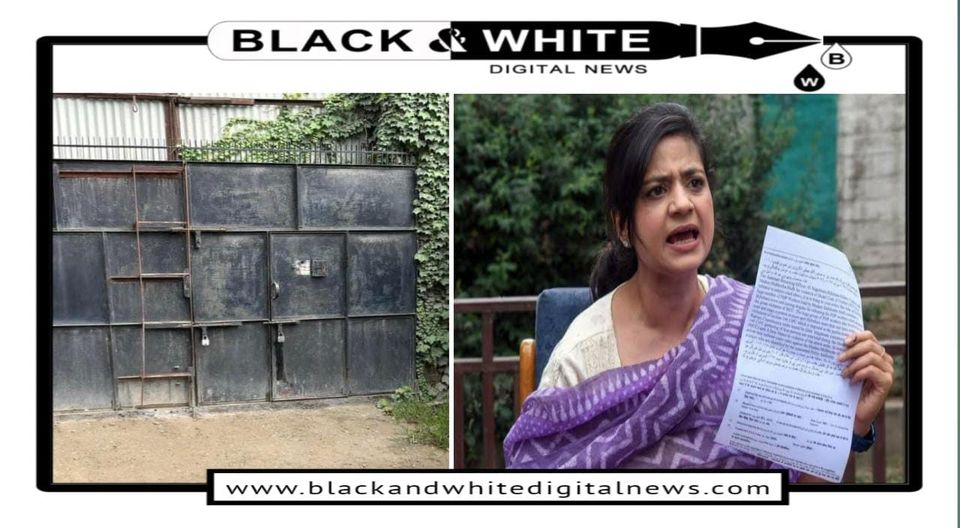Iltija Mufti Criticizes Government’s Claims of Normalcy in Kashmir on 5th August
||Black and White Digital News ||
||Parvinder Singh August 05,2024 ||
Srinagar: On the anniversary of the abrogation of Article 370 and 35A, Iltija Mufti, daughter of former Jammu and Kashmir Chief Minister Mehbooba Mufti, voiced strong criticisms against the government’s claims of normalcy in the region. In a series of statements, she highlighted the ongoing house arrests of political leaders and questioned the government’s approach towards maintaining law and order.
House Arrest on 5th August:
Iltija Mufti took to social media to express her grievances about being placed under house arrest on this significant date. “If Kashmir is as normal as the Government of India claims it to be, why does the Jammu and Kashmir Police place us under illegal house arrest on 5th August every year?” she questioned. She further criticized the police for their “arrogance,” mentioning that the SHO Nowgam had locked them inside their own house and taken away the keys. “Cops or new-age jailers? You decide,” she added.
Accusations of Authoritarianism:
Iltija Mufti accused the government of exhibiting a “dictator attitude” while simultaneously claiming that Kashmir is in a state of normalcy. She argued that the house arrests of political leaders on this day reflect the government’s false assertions about the situation in the region.
Background: Abrogation of Article 370 and 35A:
On August 5, 2019, the Government of India abrogated Article 370 and 35A of the Constitution, which granted special autonomy to the region of Jammu and Kashmir. This move was met with widespread criticism from local political leaders, including Omar Abdullah, who have consistently deemed the abrogation as illegal. The decision led to significant political upheaval and a stringent security clampdown in the region.
Political leaders, including Omar Abdullah, have repeatedly asserted that the abrogation of Article 370 and 35A was carried out in an unconstitutional manner. They argue that the special status of Jammu and Kashmir was an essential part of its accession to India and that any changes to this status should have required the concurrence of the Jammu and Kashmir Constituent Assembly, which no longer exists.
Government’s Stance on Normalcy:
The government has maintained that the abrogation of Article 370 and 35A was necessary for the integration of Jammu and Kashmir with the rest of India and for the region’s development. Officials claim that normalcy has returned to the valley, pointing to the restoration of tourism, the conduct of local elections, and improved infrastructure as evidence.
Contradictions Highlighted:
Iltija Mufti’s statements underscore the contradictions between the government’s claims and the experiences of local political leaders. The recurring house arrests on August 5 highlight the ongoing tensions and the lack of political freedom in the region. These actions suggest that despite the government’s assertions, there are still significant restrictions on political activities and expressions of dissent in Kashmir.
The house arrest of Iltija Mufti and other political leaders on the anniversary of the abrogation of Article 370 and 35A raises serious questions about the true state of normalcy in Kashmir. While the government claims progress and stability, the continued suppression of political dissent suggests that the region’s political landscape remains fraught with challenges. The voices of local leaders like Iltija Mufti serve as a critical reminder of the complexities and unresolved issues in Kashmir, five years after the historic decision.



